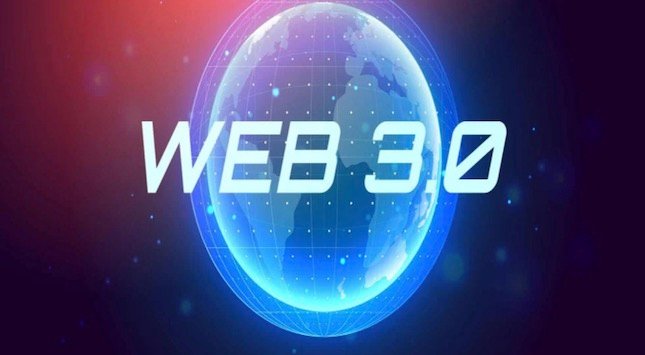
Looking back on the evolution of the internet, we can say that it has gone through significant changes from time to time. In this digital era internet has evolved into Web 3.0, which comprises futuristic technologies, including blockchain networks, NFTs, cryptocurrencies, and much more.
The advent of the third-generation internet enables users to establish a decentralized network having access to their own data. In addition, blockchain offers the utmost privacy and transparency for users across the globe.
At the early arrival of the blockchain network, possibilities ranged only to cryptocurrency and token transactions within the same network. Later Ethereum explored the possibility of Non-fungible tokens in 2015. The defining features of the Web 3.0 internet are the decentralized, trustless, and permissionless nature of carrying out operations.
Why Web 3.0 Is A Reliable Internet Space
Web3 comprises futuristic technological advancements which solve the challenges in the current digital space. In addition to providing solutions to Web2 challenges, the current internet space promises decentralization eliminating the need for centralized authority’s presence in the digital space, especially for internet transactions.
The distributed ledger technology enables operations on the internet through network nodes spread across the participant’s electronic devices. This innovative data storage through nodes ensures no single authority can pull the plug on the blockchain network. However, these networks can slow down to network congestion which is effectively sought with new scalable solutions apt for networks.
Explore the Sound Advancements in Web 3.0
As a way to overcome the barriers and challenges in the conventional internet space, web 3.0 comprises robust technological advancements, which are mentioned below in this blog.
Cryptocurrencies
Cryptocurrency has been the internet’s buzzword since bitcoin reached colossal market value. In addition, cryptocurrencies and tokens have paved the way for DeFi transactions using the blockchain network. This emerging financial technology poses a viable alternative for centralized financial institutions to carry out transactions.
Users can carry out crypto transactions to the desired wallet address regardless of their geographical locations and other barriers in traditional financial institutions. Additionally, the users have autonomy over the funds stored in their wallets, which enables the users to process financial transactions 24/7.
Non-Fungible Tokens
While cryptocurrencies and DeFi are better alternatives to banks and centralized financial institutions. NFTs were taking the art world by storm, enabling artists to tokenize their masterpieces. Moreover, NFTs can be purchased from NFT marketplaces. These tokenization methods have extended their applications and use cases extensively.
Apart from NFT offering immutable ownership to the owners, it has extended its potential to revolutionize major sectors, including fashion, gaming, supply chain, education, and real estate industries.
Furthermore, NFTs also have an integral part in the metaverse developments enabling the virtual platform users to experience realistic virtual worlds powered by NFTs.
Metaverse Platforms
The metaverse is said to become the new reality world for mankind in the future. This 3-Dimensional virtual world will take the user experiences beyond the flatscreens, paving the way for users to interact with the environment. Moreover, this technological advancement will give new ways to enterprises and businesses across the globe to carry out their daily operations.
Many entrepreneurs and CEOs of leading tech giant companies believe that the metaverse can house a lot of innovations and open new opportunities. Moreover, leading global brands like Nike, Gucci, and Samsung have already set their foot firm in the metaverse by opening their virtual stores. These virtual stores enable customers across the globe to shop for their favorite products in the virtual store outlets, which can be delivered to their doorstep.
Technologies like Artificial Intelligence (AI), blockchain, NFTs, VR, and AR will function as the pillar for these developments. Metaverse also has the potential to support numerous real-life applications in the virtual environment. Having such robust scope, Metaverse can make Jenkins ‘Black Box Fallacy theory come true.
How Businesses Counter Their Challenges With Web 3.0 Solutions
Web 3.0 technological advancements have greatly empowered industries across the globe in recent times. Businesses have finally found their solution to overcome the barriers in the traditional system. Cryptocurrencies will soon become entrepreneurs’ favorite go-to payment mode as it does charge entities with huge transactional charges and offers seamless cross-border payments.
On the other hand, NFTs can be used by industries to create a new revenue stream. In addition, many industries are leveraging NFTs to create authenticity for their products in the market. Customers can verify that they are buying authentic and original products from their favorite brands through NFTs.
At the same time, Metaverse revolves around the Web 3.0 realm as the hottest topic. It provides a wide spectrum of opportunities for businesses. In this digital era, the majority of people’s lifestyle is tech-centric and seeks comfort in almost every aspect.
Metaverse developments are aligned toward meeting the current lifestyle patterns. As global brands open their stores in the virtual space, it enables customers to shop for products with an in-store shopping experience. At the same time, they also don’t have to lose the comfort of their homes.
Summing It Up
The advent of blockchain technology has paved the way for many businesses to leverage the internet space more effectively. In addition, many businesses are effectively adopting blockchain technology to transform their loyalty programs into effective rewarding programs.
On the other hand, Web3 has emerged as a reliable tech advancement as it offers decentralization of data, privacy, and anonymity for the users, unlike the current version of the web.




